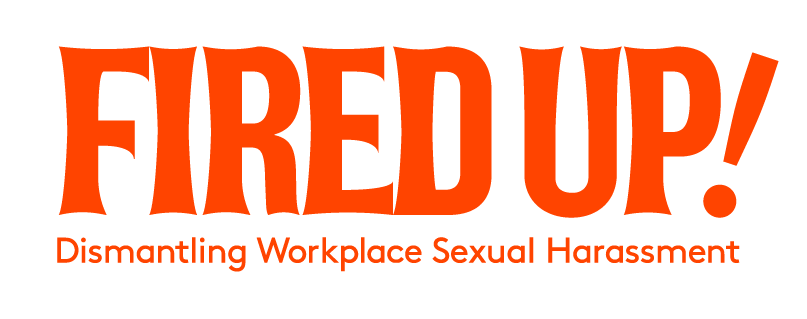The Intersectional Challenges Of Fighting Workplace Sexual Harassment As A Disabled, Non-Binary POC
At least half of all women in Australia have experienced sexual harassment, abuse or violence. That’s 1 in 2 that has been sexually harassed, 1 in 3 that has been physically abused and 1 in 5 that has been sexually abused. Let that sink in. With #FiredUp, Refinery29 Australia makes an ongoing commitment to spotlighting this serious and pervasive issue with the goal of dismantling gendered violence in Australia.
From racism to ableism and gender discrimination, Akii Ngo has faced adversity in and out of workplaces for years. As a disabled non-binary femme person of colour, they've always felt uncomfortable when perceived "in a very specific light" the moment they walk through the door.
AdvertisementADVERTISEMENT
Reporting problematic behaviour can be hard as the odds feel stacked against them, and it's been particularly troubling when there have been instances of sexual harassment at work.
"I think when you're disabled, when you have additional requirements compared to your non-disabled employees, you're already looked at in a very specific light," Ngo told Refinery29 Australia. "You're already looked at as if you're much more effort than a non-disabled person."
The Asian Australian, who has a connective tissue disorder called Ehlers-Danlos syndrome and a number of other disabilities, said this is one of the reasons that a previous workplace "never felt like a safe enough place to bring up" sexist remarks or behaviour directed at them. Other challenges in different workplaces included gaslighting by managers or board members, or concerning assumptions made by colleagues.
Photography by Glen Cook
While Ngo was never groped, they experienced former co-workers "just randomly touch" them.
"It happens, even just using my walking stick, I've literally had men in business suits go behind me, put their arm on my hip, around my waist, and help me along," they explained.
"I'll be like, 'What the fuck? I didn't ask for this.' And they'd just be, 'Oh it looked like you were struggling, I thought I'd give you a hand.' They'll literally have their hand just above my ass and like dude, you're being disgusting and you just touch me without my permission."
Ngo said that while people thought they were helping or doing a favour, they were actually "touching without permission". "They [men] just don't think anything of it, but they actually can really impact you and it really impacted me because you just feel automatically unsafe," they said.
AdvertisementADVERTISEMENT
Another common occurrence was facing inappropriate sexual questions or remarks from people "just to satisfy their curiosity".
Ngo recalled an instance when they attended an external meeting in a professional capacity. "On the way to my meeting in a professional setting, people have said, 'Oh, looks like you've hit it a bit rough last night, is that why you're using the walking stick?'
"They're insinuating that I had such rough sex [and that's why] I'm using a walking stick, which obviously feels quite upsetting. Just little things can add up, and it's just quite complex because as an Asian-appearing feminine person, there's a lot of hyper-sexualisation."
Another time a colleague Ngo said they barely knew asked how they have sex. "It was just like, 'I've spoken to you twice, now you're expecting me to talk to you about my sexual organs? You just feel gross and objectified consistently, and that's not just by men, that's men and women and feminine people."
Being a person of colour has made it more isolating at times, especially when Ngo has considered potentially reporting harassment to management.
"I think the worst part is being the only person of colour in the room, and so when people say racist or sexist remarks, no one picks up on it," they explained.
"You're essentially the only recipient of it or it's a microaggression and you pick up on it, but because it has a race component to it, no one else notices it and you're the only one impacted by it. And if you speak up, people make you feel like you're imagining things because there's a room full of people and no one else saw anything."
AdvertisementADVERTISEMENT
There was one time a male board member tried gaslighting Ngo with derogatory remarks about race and gender.
"He literally said, 'If you people knew how to assimilate properly, you wouldn't experience racism. If you knew how to be a proper Australian, you wouldn't experience this. Therefore if you knew how to be a proper woman, men wouldn't hurt you.'"
In March 2020, the Australian Human Rights Commission released its Respect@Work report, the product of an 18-month inquiry – led by Sex Discrimination Commissioner Kate Jenkins – into sexual harassment in Australian workplaces. The report indicated workers with disability, workers from CALD backgrounds and LGBTQIA+ workers were amongst several groups identified as having greater exposure to workplace sexual harassment.
Ngo said systemic changes need to be made so people feel more empowered to call out sexual harassment in the workplace.
"The way the system's been built is that the onus is always on the victim to get the justice that they deserve but never really get," they claimed.
Ngo is speaking up, but wants institutions to do their part. As they ended this interview, they had one word to describe the journey as a victim-survivor: "Exhausting."
If you or anyone you know has experienced sexual or domestic violence and is in need of support, please call 1800RESPECT (1800 737 732), the National Sexual Assault Domestic Family Violence Service
AdvertisementADVERTISEMENT







